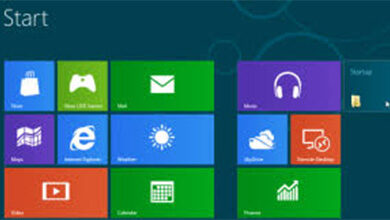
Importance of 5G Technology in Pakistan Mobile communication networks of the fifth generation (also known as 5G) are heterogeneous network that provides a competitive advantage in the field of wireless communication. Users will be able to maintain an uninterrupted connection thanks to the 5G network. 5G is gaining popularity in several developed economies, including the United States. Observers, vendors, and operators have all verified this position in the wake of news of 5G network rollouts and the availability of 5G-enabled devices.
On the other side, many developing countries, such as Pakistan, are lagging behind in their development. Among the challenges in Pakistan is the poor rate of return on investment, the scarcity of discretionary income, and the lack of urgency when it comes to innovation. The amount of national R&D investment in Pakistan, for example, is barely 0.3 per cent of the country’s GDP, compared to 0.8 percent in India and 2.0 percent in China. As a result of these and other difficulties, 5G deployment is becoming more challenging while also becoming more fascinating. The penetration of 3G/4G networks is expanding at an alarming rate.
Pakistan Telecommunication Authority (PTA)
According to statistics from the Pakistan Telecommunication Authority (PTA), the total number of 3G and 4G users would reach 106.68 million by the end of November 2021, an increase over the previous year. However, the potential for 3G/4G uptake is significantly greater. Pakistan has a large population with reasonable financial growth potential, as well as dynamic urban centres, the ability to quickly access suitable 4G/5G spectrum, and a poorly developed fixed-line infrastructure. Pakistan also has a large population with good potential for financial growth and as well as a dynamic urban centre. Pakistan has a large population with reasonable financial growth potential, as well as dynamic urban centres, the ability to quickly access suitable 4G/5G spectrum, and a poorly developed fixed-line infrastructure. Pakistan also has a large population with good potential for financial growth and as well as a dynamic urban centre.
The Importance of 5G Technology in Pakistan
In digital economies, high-speed internet access, digital identity frameworks, and multi-sided platforms are essential for successful digital citizenship, rich digital lifestyles, and global digital commerce to take place, among other things.
Because it is a component of the Fourth Industrial Revolution, mobile is at the heart of Pakistan’s national development strategy and progress along the digital society route, assisting in the closure of connectivity gaps, the improvement of financial inclusion, and the long-term transformation of various industries. It is estimated that the mobile sector in Pakistan is significant and expanding in importance. In addition to being a huge contribution to the economy, technology is transforming the way people, businesses, and government bodies conduct business and communicate with one another.
Although 5G is significant not only because it has the ability to handle millions of devices at ultra-high speeds, it is also significant because it has the potential to transform people’s lives all over the world. It is possible that increased access to 5G technology would improve mission-critical services that are important to the current state of public safety and security. With the goal of transforming Pakistan into a “knowledge-based economy,” the government is implementing excellent measures for early digital inclusion and timely adoption of cutting-edge technology, which will ultimately contribute to the socioeconomic well-being of our people.
Pakistan is not prepared for 5G technology. The World Bank assessment, which was commissioned by Pakistan’s Ministry of Information Technology and Telecommunication, was intended to assess the country’s readiness for 5G technology. “Pakistan: Telecoms Advisory Assistance, 5G Readiness Plan for Pakistan,” according to the final report, was assessed to establish whether or not the country’s telecommunications market was ready for 5G by comparing it to adjacent countries and global benchmarks.
The findings of these assessments were in stark contrast to Pakistan’s grandiose 5G goals for 2023, and they sparked a whole new debate over the performance of the Ministry of Information and Telecommunications. Several problems need to be addressed in order to facilitate market readiness, according to the World Bank. Pakistan is not yet 5G ready, according to the World Bank.
Globalization, according to the World Bank,
It is important to note that there are several obstacles to success, including a lack of large contiguous blocks of affordable spectrum, greater access to fibre backhaul, and the widespread availability of affordable 5G smartphones and other devices, all of which are necessary preconditions for success.
Pakistan has not yet achieved 5G readiness.
After years of 5G preparation, we still have a lot of difficulties to resolve before the 5G era can officially begin in Pakistan, according to the government. As predicted conceptually, there are a number of concerns that are not being addressed in practise as expected. Some of the characteristics are coverage area, spectrum efficiency, latency, interference, energy efficiency, and power consumption.
- as a result of the difficulties
- There are several difficulties that need to be addressed.
- In actuality, these requirements are not being met.
- as expected by theoretical calculations
- Coverage area and frequency range
- latency, interference, and other factors
- Efficiencies in energy use and electricity
- consumption are just a few examples of problems
Policy for the management of IMT spectrum
Pakistan’s IMT spectrum management policy has been identified as the most significant barrier impeding the sector’s ability to fully invest in 4G development and sector competitiveness. Furthermore, the IMT spectrum has been priced so that only the industry leaders can afford to participate, thus impeding Pakistan’s ability to become 5G-ready in the near future.
Assistance to Mobile Network Operators
Mobile operators require fast auctions, reasonable licencing fees, and a degree of future assurance in order to launch and grow their services, among other things. A medium- to long-term spectrum plan, which is updated on a regular basis and ensures that operators can successfully implement it, must be developed by the government and regulators.
Further, the authorities should consider lowering spectrum prices in order to allow mobile network operators (MNOs) to concentrate on service rollout and the development of Pakistan’s 5G ecosystem. Mandatory 5G coverage and QoS levels should also be maintained at reasonable levels, handsets and data taxes should be eliminated or at the very least minimised in order to facilitate the rapid adoption and uptake of services, and fibre proliferation should be completed as soon as possible in conjunction with a plan to improve wireless backhaul frequencies.
- The government and the regulatory body
- must establish a medium for communication
- a long-term spectrum strategy
- It should be updated on a frequent basis.
- as well as ensuring that operators
- successfully put it to use.
It is possible to make money leasing RoW assets, especially in nations where there is a lack of either a national RoW policy or its implementation, or both, which can make it a lucrative technique of boosting your earnings. Due to a lack of a robust tariff and legislative constraints on fiber laying rights of way, Pakistan finds itself in a similar situation as the United States.
Service of High Quality
There are two reasons for Pakistan’s poor network performance: first, the country has a small population. I The regulator maintained a modest level of criteria and benchmarks in the awarding of 3G/4G licences to mobile operators.
Operators are only required to maintain data speeds of 256 kbps and 2 Mbps for 3G and 4G clients, respectively.
respectively. (2) The majority of users are more concerned with saving money than they are with the quality of the service. A good example of this is Telenor’s low ARPU in Pakistan: in 2Q19, Telenor’s Pakistan branch had an ARPU of only 12 NOK, less than half of Telenor Myanmar’s ARPU of 25 NOK a month. As a result, mobile network operators (MNOs) must make trade-offs between coverage and capacity. These two variables have a direct impact on KPIs (key performance indicators), which include, among other things, voice quality and data rates, among other things.
Preparedness for the Market
Only high-end imported smartphones, such as the Samsung Galaxy S22 ultra, the iPhone 13 Pro, the Xiaomi 11T pro, and others, are equipped with 5G connectivity. Low-cost smartphones do not have 5G connectivity, yet the vast majority of people in Pakistan use low-cost smartphones. The majority of the phones that are being made in Pakistan are also mostly 2G in functionality. There is a considerable requirement for the establishment of a 5G device ecosystem before the launch of 5G services. As a result, when 5G services are eventually available, users will be able to quickly transition to the 5G network.
Despite the fact that 5G is still in its early stages of development in most nations, the discussion over the lucrative spread of the technology, which is set to become the new global wireless standard, is becoming more heated. This presents a significant challenge to the governments of developing countries. The standardisation of LTE, the improvement of spectrum efficiency, and the allocation of extra airwaves are the factors that have contributed to the cost-effective implementation of 5G technology.
- before launching 5G services, it is necessary to
- There is a compelling need to establish a
- The ecosystem of 5G devices
Starting in 2018, the Digital Pakistan initiative intends to boost connectivity, improve digital infrastructure, raise investment in digital skills, and promote innovation and technology entrepreneurship in Pakistan and the world at large. Pakistan, despite its belief in digitization as a foundation of progress, has yet to see any tangible results from 4G LTE and the existing spectrum auction process.
5G Technology in Pakistan
Starting in 2018, the Digital Pakistan initiative intends to boost connectivity, improve digital infrastructure, raise investment in digital skills, and promote innovation and technology entrepreneurship in Pakistan and the world at large. Pakistan, despite its belief in digitization as a foundation of progress, has yet to see any tangible results from 4G LTE and the existing spectrum auction process.
FAQs
Why is 5G technology important?
5G can power technology well beyond what current mobile technology permits. Thanks to its speed and bandwidth, 5G promises to make significant improvements in 3D holograms, virtual reality and augmented reality, creating opportunities to connect people far beyond what current cellular technology allows.
Does 5G works in Pakistan?
The telecom operators — including Jazz, PTCL, Telenor Pakistan, and Zong — have successfully made trials of 5G in Pakistan.
Why is 5G important for the future?
5G promises to simply improve cellular capabilities, providing enhanced broadband power and boosting mobile capacity and data rates. In fact, 5G is 10 to 50 times faster than previous generations
What is the conclusion of 5G technology?
5G will lead to one of the biggest technological transformations of our lifetime, with unlimited possibilities.
Is 5G better than 4G?
5G has the potential to be 100 times faster than 4G, with a top theoretical speed around 20 Gbps and current, real-world speeds from 50 Mbps to 3 Gbps
Is ZonG 5G available in Pakistan?
Zong has been at the forefront of digital transformation in the country. The company made accelerated progress towards 5G testing in Pakistan becoming the first company to successfully test 5G services in Pakistan last year.




